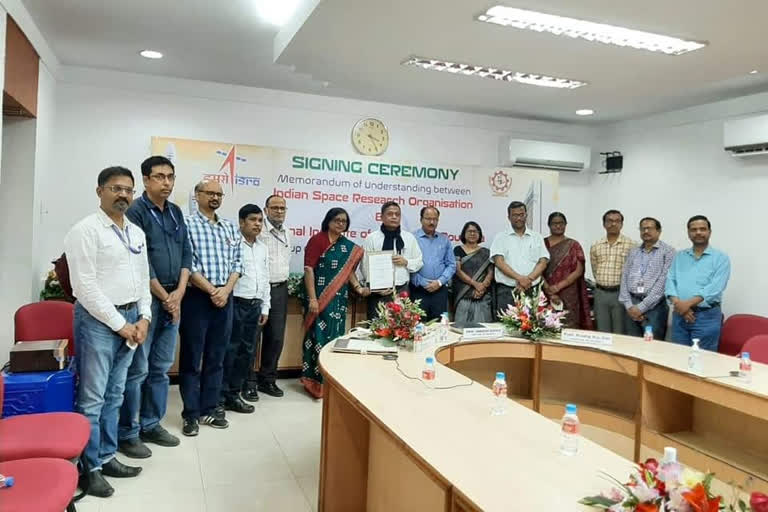Rourkela: The Indian Space Research Organisation (ISRO) on Friday announced that it is going to establish a 'Space Technology Incubation Center' (S-TIC) at the National Institute of Technology (NIT), Rourkela.
The aim of establishing a S-TIC is to carry out research and product development in space technology and applications.
The upcoming centre will promote startups, capacity-building, innovations and research in space technology in the states Odisha, West Bengal, Bihar and Jharkhand besides the Andaman and Nicobar Islands.
NIT Rourkela will provide its state-of-the-art laboratories, facilities and expert faculties to meet these objectives.
The space technology-related research and the products from the S-TIC will be utilised in future Space missions and will help nation building through 'Aatmanirbhar Bharat Abhiyan' in space technology and applications domain, K. Sivan, Chairman, ISRO and Secretary Department of Space, Government of India, said in a statement.
Students and research scholars will execute real projects given by ISRO of NIT Rourkela taking guidance from expert faculties, mentors from ISRO and relevant industries, Sivan added.
Read: Woman gives birth to first known baby with antibodies against coronavirus, doctors say
ISRO will provide an annual Grant-in-Aid of Rs 2 crore for a period of up to two years to NIT Rourkela as seed money for setting up the S-TIC.
The seed money would be utilised for facility augmentation to carry out the research projects and product development taken from ISRO. NIT Rourkela will provide the required infrastructure inside its academic campus.
Read: HC refuses to stay summons issued to Mehbooba Mufti by ED in PMLA case
The key outcomes envisaged from the S-TIC include Research and innovation in space technology, product development, IPR, space start-up, business incubation, etc.
The MoU between ISRO and NIT Rourkela for setting up the S-TIC was signed on March 18, 2021 virtually. This collaboration with ISRO will open up new opportunities for research and development as well as space start-ups.
IANS



